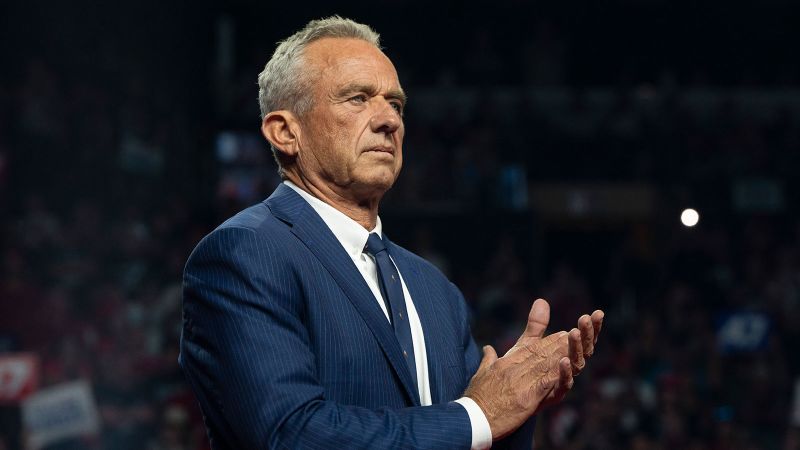The upcoming Senate confirmation hearing for Robert F. Kennedy Jr. promises to be an intense scrutiny session that dives deep into his controversial history and inflammatory remarks, especially within the context of his nomination as the Health and Human Services Secretary under President Donald Trump. This pivotal hearing is set for Wednesday and will likely address a myriad of health-related issues that have sparked significant debate.
Kennedy, whose opinions have garnered attention for their contentious nature, is anticipated to face rigorous questioning from Democratic senators concerning his widely regarded false assertions linking vaccines to autism and labeling them as unsafe. His history of conspiratorial rhetoric surrounding federal health agencies and public health policies will also be a focal point of contention. On the flip side, Republicans are expected to pursue clarifications from Kennedy on his positions related to abortion rights and agricultural matters, further complicating the narrative surrounding his confirmation process.
It’s essential to reiterate the well-documented advantages of routine vaccinations, as highlighted by the Centers for Disease Control and Prevention (CDC). Vaccinations are projected to prevent hundreds of millions of illnesses, tens of millions of hospitalizations, and save more than a million lives among individuals born between 1994 and 2023. This information serves as a crucial backdrop to the debate surrounding Kennedy’s views on vaccines, accentuating the public health implications that have arisen from debates over vaccine safety and efficacy.
In addition to the public health benefits, it is important to note that vaccines undergo extensive testing prior to their release to the market, and their safety and public health impact undergo continuous monitoring even after they are widely distributed. The emphasis on vaccine safety is critical in countering the misinformation that has proliferated in recent years, particularly from figures like Kennedy, who have questioned the credibility of scientific consensus regarding vaccine safety.
Robert F. Kennedy Jr. hails from the famed Kennedy political dynasty and has espoused a progressive image throughout his career. He initially made a name for himself as a lawyer championing environmental safety and taking on powerful pharmaceutical companies. However, his trajectory took a significant turn when he founded the nonprofit organization Children’s Health Defense, which has become notorious for promoting anti-vaccine misinformation. In the lead-up to his current nomination, Kennedy positioned himself as a “Make America Great Again” (MAGA) supporter after transitioning from a Democratic presidential candidate to a more conservative alignment, ultimately endorsing Trump.
Kennedy’s move to the Trump administration, via his nomination to helm a crucial health position, has drawn considerable skepticism. Should he be confirmed as the Secretary of Health and Human Services, he would oversee a vast network of federal health agencies. These include prominent organizations such as the Food and Drug Administration (FDA), the National Institutes of Health (NIH), the Centers for Medicare & Medicaid Services (CMS), and the CDC, all of which play critical roles in public health strategy and the regulation of food and drugs.
The magnitude of the role is amplified by the fact that the Secretary of Health and Human Services commands a budget of over $1 trillion, overseeing vital health insurance programs that serve millions of Americans. This expansive portfolio raises significant questions about how Kennedy’s controversial views may impact health policy direction and public trust in governmental health advisories.
As the Senate hearing approaches, the political landscape continues to shift, and a spokesperson for Kennedy has remained silent in response to queries. In the meantime, the implications of his confirmation have sparked both public interest and concern regarding the future of health policy in the United States, especially in light of ongoing public health challenges. This confirmation hearing stands at the intersection of health, politics, and public safety, demanding careful scrutiny of Kennedy’s past statements and their potential repercussions on American health strategies and policies moving forward.












